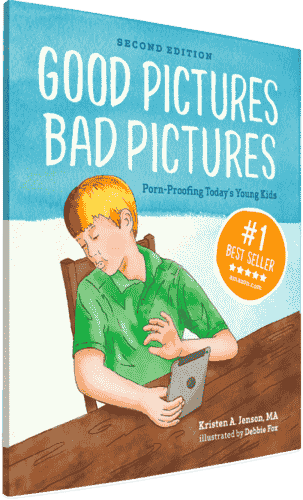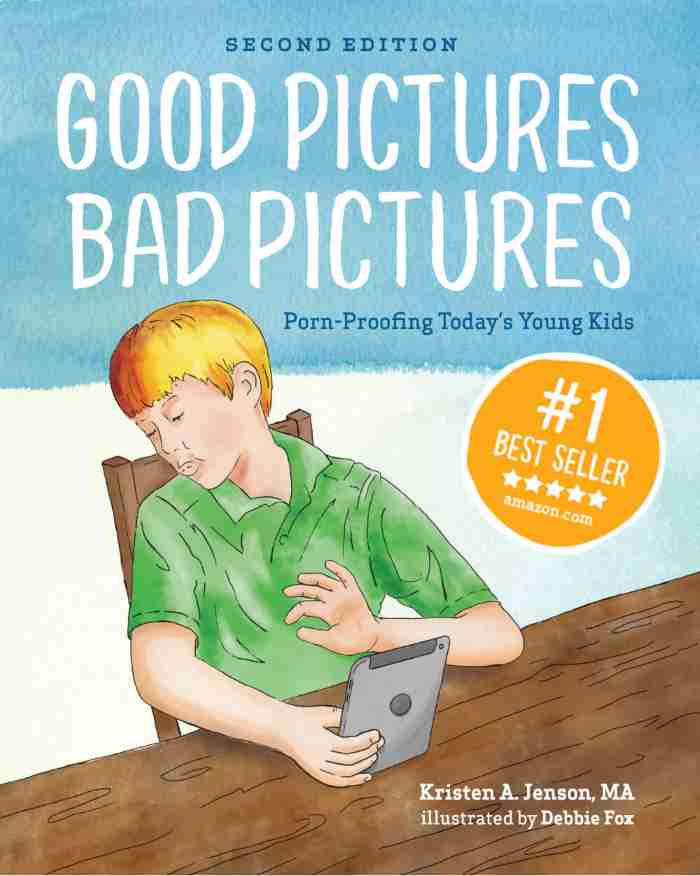

Sibling Sexual Trauma: 7 Myths That Endanger Children & Disempower Parents
Sibling sexual trauma*. It’s not something anyone wants to think about. It’s not something any parent expects. But it's one of the most tragic consequences of child exposure to pornography and reports of it are increasing. The myths below are common. But the silence, secrecy, and naivete that surround it allow it to thrive. I believed most of them myself, until the reality of sibling sexual trauma between my own children was exposed.

Myth #1: Sibling sexual trauma is rare.
Though it is under-studied and under-reported, sibling sexual harm is suspected to be one of the most common causes of child sexual trauma. Does your child or another child you know have a food allergy? Sibling sexual trauma is estimated to be at least as common.
Related: Sexual Assault Expert Warns of Heartbreaking Trend Among Children
Myth #2: Sibling sexual abuse only happens in dysfunctional or abusive families.
Sibling sexual trauma knows no boundaries. Some factors do raise the risk–siblings spending a lot of time unsupervised, extreme family stress, history of sexual abuse, a large age gap between siblings, blending siblings from previously different households. But no family is immune and online porn is a big reason for that.
Related: Sexual Assault Nurse Links Porn to Child-on-Child Abuse: Interview with National Expert Heidi Olson
Myth #3: My kids are the same gender, so it can’t happen in our family.
Boys can sexually exploit their brothers, sisters can sexually harm their sisters or even their brothers. The tragic choice to sexually engage with a sibling usually has less to do with sexual orientation than with proximity and opportunity.
Myth #4: My kids are close in age, so I don’t have to worry about it.
There was a belief in the past that sexual activity between children close in age was limited to normal curiosity and was generally harmless. Since then, courageous survivors have spoken out and described lasting sexual trauma caused by siblings only a year or two older. Sometimes it can even be caused by a sibling who is younger, but has some measure of power advantage, such as being physically bigger, more favored in the family, or ahead in social or intellectual development.
Related: Sexual Behavior in Children: What's Normal? What's Harmful?
Myth #5: It’s not as bad as when an adult sexually abuses a child.
A child or teen who sexually exploits their sibling may be less aware of the harm they are causing than an adult would be, but the trauma they are causing is just as severe. Because siblings spend so much time together, abusive behavior tends to happen often and over a long time span. A child who is being sexually exploited by their sibling finds themselves on alert every day, with no relief, particularly in their own home.
Related: 4 Misunderstood Signs of Child Abuse: A Sexual Assault Nurse Speaks Up
Myth #6: A child who seeks out sexual activity with another child is destined to be a sexual predator for life.
Children do cause serious and lasting harm to other children. They need to be held accountable and get help from adults to interrupt the behavior. But they engage in this behavior for very different reasons than adults who sexually offend. They are far less likely to continue causing sexual harm once they mature to adulthood. Treatment designed for children or adolescents with harmful sexual behavior is highly effective. This is one reason that treatment, rather than incarceration or placement on the sex offender registry, is often the preferred course of action within the juvenile justice system.
Myth #7: If it happens, we can handle it within the family.
Any kind of child sexual trauma or harmful sexual behavior requires expert help and treatment. When it happens between two children in the same family, the needs are magnified, not reduced. Even parents who have mental health credentials find that it is too much for them to handle on their own. Parents and other children in the family will probably need their own mental health support, and the family as a whole will need skilled guidance to heal long-term. Any sexual harm to a child is legally required to be reported to authorities, even if it is caused by another child.
Related: Child Sexual Abuse–5 Things Parents Must Do to Avoid Causing More Trauma
Most siblings’ relationships are free of sexual harm. What can you do as a parent to keep it that way?
Here are 7 tips for keeping kids safer from sibling sexual harm:
- The most important step is familiar to Defend Young Minds readers: Defend your children against the harms of porn. Children are naturally wired to imitate what they see. And their siblings are likely to be the closest person nearby. Every child needs an age-appropriate definition of pornography, a warning about the harms, and a plan for when they are exposed. Don’t know where to start? Check out Defend Young Minds’ Quick Start Guide and the Good Pictures Bad Pictures series of read-aloud books by Kristen A. Jenson.
- Talk about body safety with your children–both respecting other people’s bodies and expecting others to respect theirs. How to Protect Kids From Sexual Abuse: Body Safety Toolkit is a great start.
- Be clear that expectations for privacy and respect apply to siblings, cousins, other children and babysitters, as well as adult relatives and friends.
- Teach that children need to respect body boundaries even if someone is asleep.
- When two children sleep in the same room, have an open-door policy, and have conversations about where their bodies should be and what touch is OK and not OK when they are awake (for example, backrubs are OK, tickling in private parts is not).
- Reassure children that if anything happens that leaves them feeling weird or yucky, it is not their fault, they can tell you, and you will help them.
- For more in depth information, consult 5WAVES’ Recommended Resources for Parents and Guide for Parents of Exceptional and Neurodiverse Children.
Related: Kids Hurting Kids! 3 Ways Parents Can Reduce the Risk of Child-on-Child Harmful Sexual Behavior
[[CTA]]
If you discover any inappropriate or questionable sexual activity between your children, what do you do?
- Stay as calm and nonjudgmental as possible.
- Keep the children separate until you have time to evaluate the situation and come up with a plan.
- If your child is reporting being harmed, reassure them that you believe them, that it was not their fault, that you are glad they are telling you, that you love them and will help them. Let them know you will check in with them again later and they can tell you more if they think of anything. Consult this article for next steps.
- If you suspect or know your child has caused harm, reassure them that you love them, that you are proud of any truth they have told or responsibility they have taken. Gently inquire if they have experienced or watched anything similar to what they were doing. Let them know that you will check in with them later and they can tell you more if they think of anything. Consult this series of articles for next steps.
- Many parents are not sure whether a behavior is problematic or normal. Sexual Behavior in Children: What's Normal? What's Harmful? has more information on how to tell and how to respond.
- Regardless of what anyone says, if you have a feeling that something is not right, trust your gut. All too often, more is happening than parents can see.
Related: Child on Child Harmful Sexual Behavior Part 1: A 3-Step Path to Prepare Parents
For even more help:
- If you need personal, specific guidance on what to do next, the Stop It Now! Helpline can offer a confidential listening ear and point you in the right direction, whether you have concerns about your child’s behavior, something that was done to them, or both.
- If you have any fear for your child’s immediate safety, call 911 (law enforcement) or 988 (mental health crisis).
- If you discover or suspect there has been sibling sexual trauma within your family, consult 5WAVES’ support and information hub at siblingsexualtrauma.com You do not have to walk this path alone.
* “Sibling sexual abuse” is the more common term, but 5WAVES prefers the term “sibling sexual trauma” for reasons outlined at the bottom of this page. For citations of data sources and more information, see https://www.5waves.org/whatdoweknow


Good Pictures Bad Pictures
"I really like the no-shame approach the author takes. It's so much more than just 'don't watch or look at porn.' It gave my children a real understanding about the brain and its natural response to pornography, how it can affect you if you look at it, and how to be prepared when you do come across it (since, let's face it... it's gonna happen at some point)." -Amazon Review by D.O.






egergr_edited%20(1).png)
